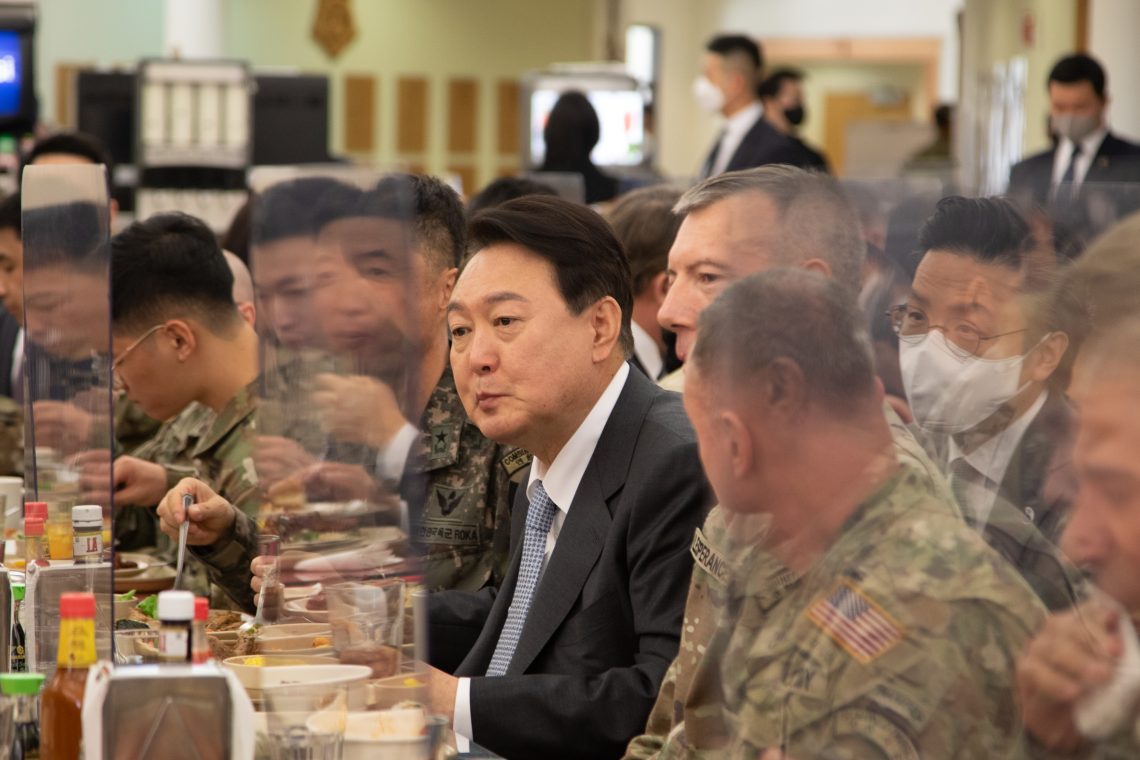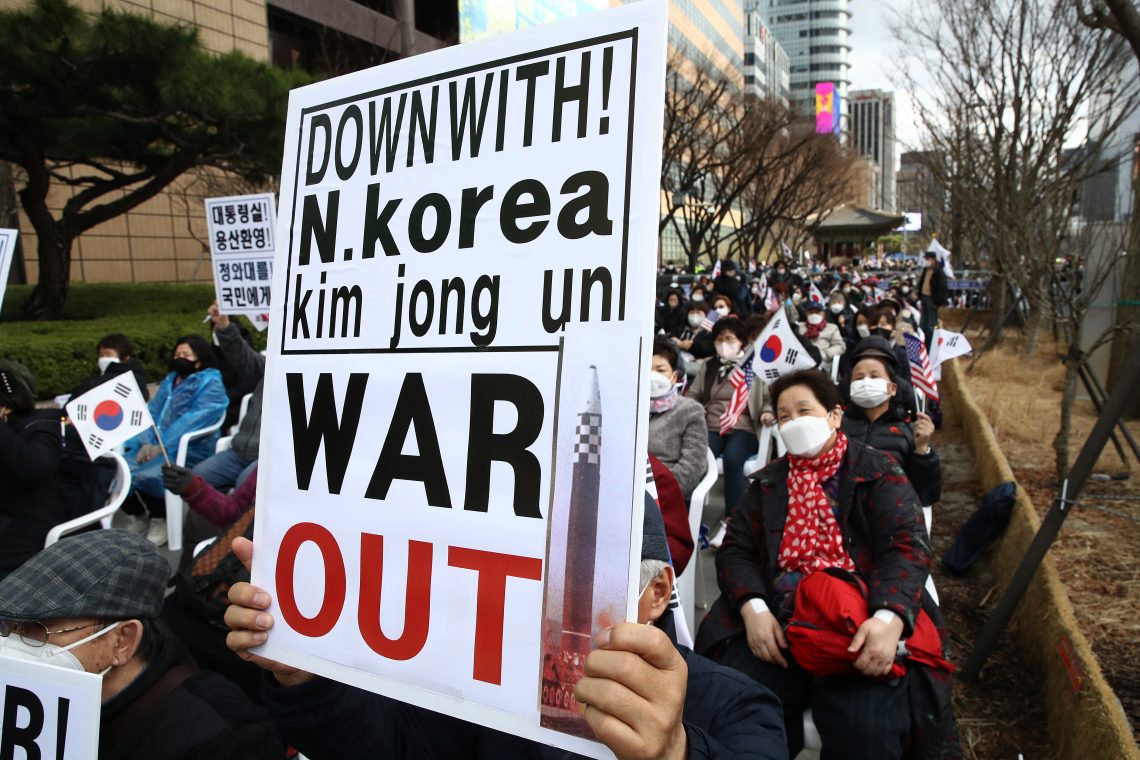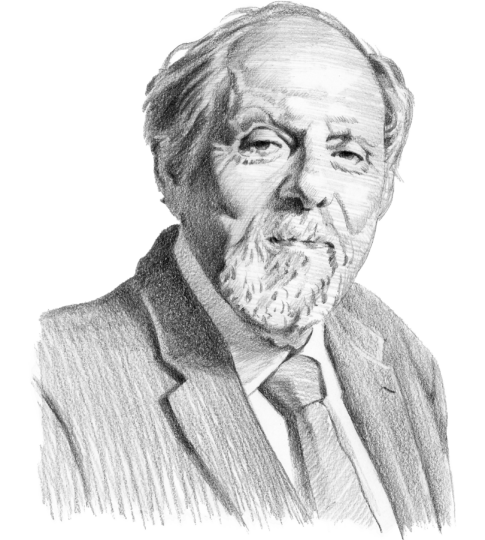Security implications of South Korea’s election
The war in Ukraine reverberates in Seoul, where a new president-elect vows a tougher line on North Korea.

In a nutshell
- South Korea’s president-elect will take a tougher stance on Pyongyang
- Implications of war in Ukraine are acutely felt in East Asia
- Seoul needs the United States, Japan to ward off China and Russia
The Republic of Korea, known as South Korea, held its regular presidential election on March 11. In a tight race, Yoon Suk-yeol of the conservative People Power Party won against liberal contestant Lee Jae-myung of the ruling Democratic Party. A mere 0.8 percent of the votes cast separated the two candidates in the nation of 52 million people. While the campaign was rather vicious and dirty, the actual voting went smoothly, and the result was accepted by everybody.
Currently, the attention of the world is focused on the war in Ukraine. Some analysts bring up the issue of Taiwan, speculating about what lessons the Chinese leadership might draw from the reactions of the West, particularly the United States, to the Russian invasion of Ukraine. President Xi Jinping has repeatedly stated that to achieve the historic goal of uniting Taiwan with the “motherland,” the use of military force cannot be ruled out. The world anxiously wonders whether Russia’s invasion of Ukraine has increased the chances of a war over Taiwan.
The shadow of Pyongyang
In all this turmoil, public attention to the threats posed by the North Korean regime of Kim Jong-un, who leads a nation of 25 million people, has receded. This lower profile has come despite highly provocative rocket tests aimed at both the neighborhood in the Far East and the U.S. Mr. Kim must be wondering what happened to all the attention that had been accorded to him, when Donald Trump resided in the White House. While Mr. Trump from Mar-a-Lago occasionally refers to the good relations he has had with “rocket man,” the Biden White House is mostly silent. Meanwhile, threats emanating from the militaristic dictatorship in North Korea have not diminished. To the contrary, Mr. Kim continues to provoke by launching ever more lethal rockets.
The threats emanating from the militaristic dictatorship in North Korea have not diminished.
It is amazing that, despite Pyongyang’s threats, South Korea goes about its politics like every full-fledged democracy in a much less challenging and less dangerous environment. It also achieves remarkable economic success. This is a particularly important fact in an era when autocratic regimes claim to be more successful economically than democracies. South Korea is a showpiece example of a successful democracy that does not adhere to Eurocentric Western values. Korea, like China and Japan, belongs to the world of Confucianism.
An orderly transfer of power
The main deficiency of authoritarian regimes is their systemic incapacity to achieve an orderly transfer of power. In fact, we are just witnessing this challenge in China. One of the few political reforms within the legacy of Deng Xiaoping, who ruled from 1978 to 1989, had been to limit the terms of office for the president of the People’s Republic of China to two terms of five years each. Mr. Xi has removed this limitation. In spring 2023, the National People’s Congress, China’s parliament, will confirm the leader in his third term. Even earlier, at the 20th Party Congress of the Communist Party of China in late autumn 2022, President Xi will start his third term as secretary general. All this maneuvering will mean nothing more than the postponement of the handover of power, making an orderly transition more difficult.
In South Korea, the office of the presidency is limited to one term of five years. Because the incumbent president, Moon Jae-in, could not stand for another term, his Democratic Party launched the candidacy of Mr. Lee, a provincial town mayor. His narrow defeat means that the opposition People Power Party will take the Blue House, as the head of state’s official residence is known, in Seoul.
Changes of the party in government happen often in South Korea. The electorate is narrowly split between the major political camps. This is further evidence of political vitality that stands in marked contrast to neighboring Japan, where the ruling Liberal Democratic Party has been in power for decades. The political climate in South Korea produces a strong opposition and a system capable of a democratic, peaceful transition of power. Lively political debate is part of South Korea’s soft power.
Big changes ahead
While the decision by the electorate was narrow and the two main candidates made centrist appeals, the new president is expected to bring changes, most notably in foreign and security issues, but also in domestic policies.
The newly elected president joined the People Power Party only a year ago. In his professional life, Mr. Yoon was a public prosecutor. He made his name by investigating and convicting former President Park Geun-hye. Ms. Park, the daughter of the former dictator Park Chung-hee, is the first and only woman in a male-dominated society to reach the highest office. She served as president from 2013 to 2017, when, near the end of her term, she was charged with and convicted of abuse of power, bribery and coercion. She became the first democratically elected leader ejected from office.
While enjoying a reputation as a competent prosecutor, legal issues are not the highest priorities of voters. With a neighbor like North Korea, national security is paramount, followed by the economy. Finally, there are demographic concerns with a rapidly aging and shrinking population and serious problems with integrating women into the labor force.
In foreign policy, South Korea’s main concerns lie with North Korea, Japan, China and the U.S. Experts expect an important shift in Seoul’s approach toward Pyongyang. President-elect Yoon will put more emphasis on denuclearization and will be less interested in promoting inter-Korean relations. In fact, both at home and abroad, outgoing President Moon was criticized as being too soft toward the North Korean regime.
Considerable security risks
There are high expectations that the new South Korean president will take a tougher stand against North Korea. The incoming president’s core advisors take hardline positions toward President Kim. Mr. Yoon wants to negotiate from a position of strength, suggesting a military buildup and more joint military exercises with the Americans. Both steps will provoke anger in Beijing and Pyongyang.
Initial reactions from Tokyo indicate that the Japanese government is relieved about the change in Seoul, given the poor state of relations during Mr. Moon’s presidency. A festering wound remains the bitter legacy of Imperial Japan’s occupation of Korea from 1910 to 1945, which included such abuses as forcing “comfort women” into sexual slavery.
There are high expectations that the new South Korean president will take a tougher stand against North Korea.
Japan hopes that, by taking a firmer position toward Pyongyang, Seoul will help Japanese citizens kidnapped by North Korea. This issue has been central to Japan’s negotiations with Pyongyang.

Scenarios
Mr. Yoon is due to be sworn in on May 10 and will likely start tackling security issues right away.
Before the Russian invasion of Ukraine, the economy and Covid-19 management were expected to be the most urgent issues. Everything has changed. Now, a comprehensive defense strategy is required.
The war in Ukraine is far from East Asia. But the security implications are not.
Russia will emerge from the war in Ukraine much weakened – economically, militarily and diplomatically. Nevertheless, it will remain a Eurasian power. This was visibly demonstrated when Moscow held naval maneuvers in the Sea of Okhotsk at the same time it was launching hostilities against Ukraine. Moscow underscored its capabilities when Far East Russian battleships passed near the Japanese archipelago for the long mission toward the Black Sea.
The strategic need, both for Japan and South Korea, is to become closer allies and bury historical irritants. The new South Korean president will also have to carefully weigh the reliability of the Americans. U.S. President Joseph Biden has demonstrated his willingness to stand up to President Xi on the issue of Chinese support for Russia in Ukraine. However, how many fronts is Washington willing and able to open?
If Mr. Yoon follows up on his promise to take a harder stand on North Korea, he will face stronger pressure not only from Pyongyang but also from Beijing. China might not now be interested in a major crisis on the Korean Peninsula. But this stance could change if the situation around Taiwan heats up. Warmongering by President Kim in the shape of more provocative rocket tests and possible escalation of North Korea’s nuclear program, will put pressure on the Biden administration. This situation, as well as Japan’s growing security concerns about the disputed Senkaku Islands, could benefit China.
While a more hardline position toward North Korea might find favor with many South Koreans, the mood might change drastically if Seoul finds itself under external pressure and if there are doubts about the strength of American support. In the meantime, East Asia is waiting to see the next provocation that Pyongyang has in store.








